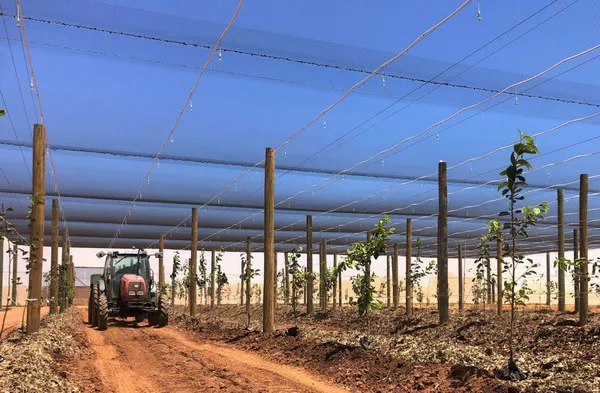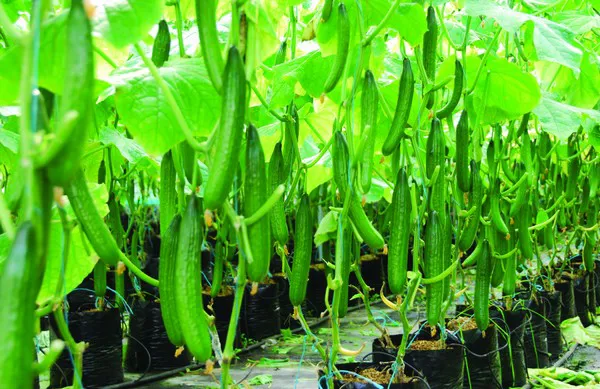The Western Australian government is investing in infrastructure upgrades in the Gascoyne Irrigation Area to assist fruit and vegetable growers in optimizing production and rebuilding irrigated agriculture research and development.
Agriculture and Food Minister Jackie Jarvis toured the reinvigorated Carnarvon Research Station to discuss advances in sub-tropical fruit and vegetable production in the Gascoyne Irrigation Area.
The state government's investments in the station's controlled environment and protective cropping infrastructure have spurred research to improve growers' crops, while new irrigated agriculture opportunities and growing techniques relevant to other regions are also being explored.
 Photos: Carnarvon Research Station, courtesy WA's Department of Primary Industries and Regional Development website
Photos: Carnarvon Research Station, courtesy WA's Department of Primary Industries and Regional Development website
The new Retractable Roof Production System - which creates a microclimate to evaluate crop management strategies - hosts a range of crop trials to assist local growers in optimizing crop potential, including capsicums, tomatoes, and zucchinis.
"The Carnarvon Research Station is now well equipped with the 803-meter square retractable roof greenhouse and the 1.3-hectare net house, with an upgraded misting and irrigation system, as well as refreshed maintenance facilities," Agriculture and Food Minister Jackie Jarvis said. "The station has the capacity to host a diverse range of small to large trials and demonstration sites, assisting local growers in seeing first-hand research applied under local conditions to optimize production and new agricultural opportunities."
The potential to diversify production systems through new perennial crops is being investigated using the new net house, including high-density mangoes and persimmons on a trellis.

In 2022 the Department of Primary Industries and Regional Development (DPIRD) and eight seed companies grew demonstration trials at the station to evaluate 102 tomato varieties, 85 capsicums and chili varieties, and 102 melon varieties. Jackfruit trellis and variety trials are also underway as part of a national research collaboration examining strategies to improve cyclone resilience and diversify crop production.
Department staff at the station work hand-in-hand with the local industry while also cultivating the next generation of growers through its collaboration with Central Regional TAFE. The station is also home to trials of sterile Leucanena and Moringa plant material, as well as grains industry disease trials screening for rust in new cereal breeding lines.
"I am really excited about the great work being done at the station by DPIRD to support our local Carnarvon growers," Mining and Pastoral MLC Peter Foster said. "I look forward to seeing how the 170 plantations nestled along the fertile delta of the Gascoyne River continue to grow and thrive into the future."
The Gascoyne Irrigation Area makes an important contribution to the State's fresh food supply and the economy, worth $110 million in wholesale value per annum.
Source: Western Australian Government Press Release










